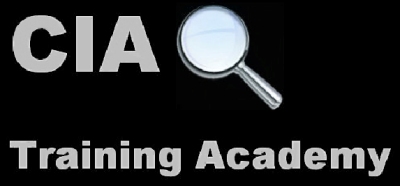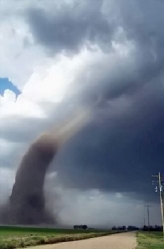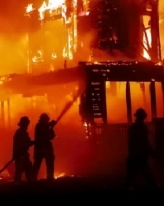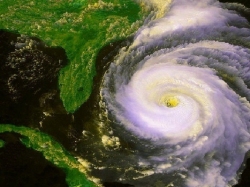
FREQUENTLY ASKED QUESTIONS
• IS
IT TRUE THAT CAT ADJUSTING IS ONE OF THE
HOTTEST JOBS IN AMERICA?
Parade Magazine did a cover story on “What People Earn” in their April
15, 2007 edition. On page four, they listed the "NINE HOTTEST JOBS (NO
COLLEGE DEGREE REQUIRED)". The fifth hottest job in America is insurance
adjusting. Their source for this assertion was listed as “Challenger,
Gray & Christmas, Inc. with data provided by the Bureau of Labor
Statistics and industry sources”. Why did they come to that conclusion?
Simple, claims adjusters earn a fantastic living while they’re helping
people at their point of need, at the point where they’re trying to put
their lives back together after a catastrophe has stuck. With that said,
what exactly does the term ‘hottest jobs’ mean exactly? I suppose that
it means that there are going to be more job opportunities as time goes
by than there are going to be qualified adjusters to fill them. This
fact is evident by all observers within the industry – which brings us
to our next question;
(To see a reprint of Parade Magazine story, click here)
• WHAT ARE MY CHANCES OF GETTING
EMPLOYMENT?
Despite the fact that there are quite a few licensee’s running around
out there thinking that they’re adjusters (they are adjusters in name
only), the demand for professional adjusters has never been greater. Cat
adjusting is unique, in that employment opportunities abound right after
a major catastrophe such as a hurricane, flood, hailstorm, ice storm,
earthquake or other natural disaster. Realize that the one thing that
you can always depend on, are catastrophes and natural disasters
happening somewhere eventually – typically sooner rather than later.
After the insurance companies deploy their staff adjusters (employees),
experienced Cat adjusters are always deployed first obviously, with well
trained adjusters picking up any openings left after the independent
adjusting (IA) firms have hired the experienced adjusters. After the
well trained adjusters are deployed, if they still have plenty of
claims, they then a left with no choice but to hire anyone with a
license. As far as employment goes before the next major Cat event, we
recommend that you try and get a job as a staff adjuster. Again, in
contrast to a Cat adjuster who is an independent contractor, the staff
adjuster is an employee of an insurance carrier. They work 40 hours a
week and they make decent pay. Employment as a staff adjuster is great
experience, and it looks great on your resume. Once you become a student
with CIA, we will make available to you quite a number of sources for
adjuster employment.
• I'VE HEARD THAT CAT ADJUSTING IS EASY MONEY.
IS IT TRUE?
I posed this question to one of our instructors, and he laughed out
loud. Nothing could be further from the truth and anyone who has
perpetuated that notion has never successfully finished adjusting a
storm. To an untrained onlooker, CAT adjusting may appear easy because
the adjusters being observed have disciplined themselves and they ‘plan
their work and work their plan’. They have their daily work plan down to
a science. A Cat adjuster can make a lot of money, but there's nothing
easy about it. Cat adjusting is probably the hardest-working, lucrative
income that most people will ever make.
• HOW MUCH MONEY DOES A CATASTROPHE ADJUSTER
MAKE?
Your income will depend to a large degree upon how much you want to make
– which means how hard you work. Some companies pay a daily rate
(normally $600-800/day), but during a catastrophe, most pay on a “fee
schedule” (a fee based upon the total amount of each claim). It is not
unusual to average $400-600 per claim, and an efficient adjuster can
turn in upwards of 3-5 claims per day. That’s $1200 to $3000 a day.
These are not exaggerated numbers. The first apprentice that I ever
field trained was my son Adam, in his mid-twenties at the time. Adam
made well over $60,000 his first storm working a total of three months
(Hurricane Katrina). This was more money than Adam had made in the
previous two years combined as a painting contractor! Obviously you will
not make exactly the same amount that he did – you would make either
more or less. On the conservative side, depending on their work-ethic,
professional adjusters will make anywhere from $20,000 to $150,000
working between 2-5 months a year. Like any other profession, it depends
upon the adjuster, experience, skills, education, capabilities,
availability, common sense, attitude, their willingness to work long and
difficult hours, the company that you work for, and to a large extent,
how one is evaluated and trusted by superiors.
• WHO SHOULD ATTEND OUR CLASS?
Anyone who has heard about insurance (or catastrophe) adjusting and is
interested in claim adjusting – OR- anyone who is tired of their current
profession and is looking for a change –OR- anyone who wants the COVETED
Texas All-Lines Adjuster License. The Texas All-Lines adjuster license
allows you to adjust every insurance claim there is (in Texas) and is
reciprocal in over 30 states, reciprocal with more than any other state
license by far!
• WHAT ARE THE CLASS REQUIREMENTS?
We want our students to come to class prepared and relaxed. Listed below
are some basic requirements our students will need in order to
effectively learn and remain comfortable:
* Notepad
* Comfortable Clothing
* Calculator
* Sense of Humor
To attend our classes, it is NOT a requirement that you have:
- Experience
- A Degree
- A Sponsor
We attempt to provide a positive and memorable learning environment
which will influence you and your career for many successful years in
this industry, therefore you must attend 90% or more of the classroom
course and / or make up any missed time and classroom notes in a later
scheduled class.
• WHO IS THE TDI ?
The Texas Department of Insurance (TDI) regulates the
state’s insurance industry. Texas law requires most Insurance Carriers
and Insurance-related businesses to be licensed before selling their
products or services. TDI licenses insurance companies, agents,
third-party administrators, health maintenance organizations (HMOs),
premium finance companies, continuing care retirement communities,
insurance adjusters, and public insurance adjusters doing business in
Texas. TDI also issues rules and regulations for the state’s
insurance industry, enforces the Texas Insurance Code, and investigates
and takes enforcement action against company, agent and adjuster
misconduct.
• WHAT ARE THE TEXAS LICENSING
REQUIREMENTS?
| 1 |
Proof
of identity |
| 2 |
Minimum 18 years of age |
| 3 |
Training or experience handling insurance loss claims (rather
vague isn’t it?) |
| 4 |
“Trustworthy” (even more vague) |
| 5 |
Complete both a TDI certified adjuster pre-licensing
course of not less than 40 hours and pass the course examination
testing the applicants knowledge and qualifications as set forth
in the Texas Insurance Code, Article 21.07-4 §10(4). The student
must score a minimum 70 to pass the exam. |
| 6 |
Mail
in a completed, notarized license application along with a
photocopy of the CIA course completion certificate, the
10 hour self-study affidavit, a completed fingerprint card, and
the required non-refundable $50 licensing fee to the TDI
in Austin, Texas |
| 7 |
In
addition, if you are a non-resident of the United States, you
must comply with all federal laws with respect to employment in
the U.S. We have never had a student fail to get their license.
If you are unsuccessful on the first exam, we will tutor you and
you may re-test at no expense to you. The method for retesting
may be explained to you by your instructor. When you
successfully complete the course we will issue you course
completion certificate which allows you to apply to the Texas
Department of Insurance for an All-Lines Adjuster License. The
Texas Department of Insurance makes final decisions about the
issuance or refusal to issue any individual insurance license.
Depending upon the volume of applications they process, you
should expect your insurance adjuster license within 2-4 weeks
after it is mailed in with no mistakes or omissions. |
• WILL A CRIMINAL RECORD PREVENT ME FROM
GETTING
LICENSED?
It is important to understand that a criminal
record does not automatically disqualify you for an adjuster license. –
We’ve all made mistakes in our past. If you do have a misdemeanor or
felony on your record (whether or not it occurred as a minor) you will
have to provide specific information to the TDI. When asked for
this information on your licensing application, be complete with your
answer – they will do a thorough background check, and they will find
out anyway. Simply follow the exact instructions on the TDI
application. It is a good idea for you to phone the TDI and ask
about your specific circumstance before incurring any expense at
512.322.3503. Your prospective employer is another matter and we can't
speak for them.
• WHAT IS RECIPROCITY?
According to the Merriam Webster dictionary,
reciprocity is the mutual exchange of privileges; specifically,
recognition by one or more States of the validity of licenses or
privileges granted by the other. This enables adjusters to use their
Texas license on a Cat event in a participating state without taking the
other state's exam or equivalent coursework. Currently, 32 states grant
reciprocity to the Texas All-Lines Adjuster License making it the most
universally accepted and sought-after adjuster license in the country.
Despite what’s being taught out there, reciprocity does not mean that
having obtained the Texas Adjuster's license that you are automatically
licensed in 30 other states. If you desire another states license, you
will still need to apply for that particular state's licenses. Think
about it like this, your driver’s license is reciprocal in the 49 other
states, but that doesn’t mean that you actually have 50 drivers
licenses.
It is important to note that if you are not a resident of Texas, in
order to enjoy the benefits of reciprocity through the Texas Adjuster's
License, in most cases you will need to have a resident license in your
home state. For example, if you want to enjoy the benefits of
reciprocity that comes with your Texas adjusters license, but you are a
resident of Florida, you will only be able to do so by:
a) holding their Florida adjuster's license first -OR-
b) establish residency here in Texas.
However, if your state of residence does not have a licensing
requirement, but you hold your Texas All-Lines Adjuster's License, you
will be eligible for reciprocity with other participating states. Thus,
a resident of North Dakota (no state licensing requirement) who has a
non-resident license from Texas will still be able to be licensed in the
32 reciprocity participating states without being required to take their
exam. For detailed information in each state regarding licensing
requirements and reciprocity in relation to the Texas license, the last
ten pages of this document represents each states adjuster licensing
requirements (as of 4/9/07) as well as details reciprocity with the
Texas license.
•
WILL I NEED MORE TRAINING AFTER YOUR CLASSES ?
Clearly, the more training and experience you
have, the more demand there will be for your services. Those adjusters
in high demand are the one’s making the big money. There are other
considerations, as well. Some employers prefer a licensee with no
experience that can enter the workplace with no pre-established bad
habits. Each company has its own way of doing things. On the other hand,
the vast majority of companies just don't have the time or available
staff to train anyone; hence those companies may prefer adjusters who
have a resume filled with training and or experience. Will those of you
with no prior training or experience walk right into a high paying job
following our classes? As a general rule, no. However, without the
appropriate license, there will be NO chance of becoming an
adjuster for anyone – everyone has to start somewhere. We normally
council those with no experience to talk to experienced adjusters who
have been down in the trenches, and then make up their own mind about
what's needed.
|





![]()
![]()
![]()
